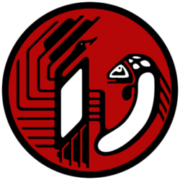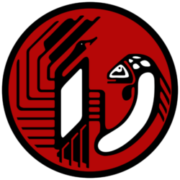The Aboriginal Healing and Wellness Program
Goal
The goal is to foster improvements in the health and wellbeing of Aboriginal individuals, families, communities and Nations through:
- provision of equitable access to primary health and healing services and programs, including prevention, treatment and support, that are culturally appropriate and culturally competent;
- building on the strengths and enhancing the capacities of Aboriginal communities; and
- promotion of equitable, violence-free relationships and healthy environments.
Objectives
Healing and Wellness Coordinator
The area of responsibility of the HWC is to ensure that the healing and wellness needs of the Aboriginal community are addressed by implementing the Aboriginal Healing and Wellness Strategy at the local level. The HWC worker program focuses on the reduction of family violence and improving Aboriginal health which is achieved through provision of services for those most at risk, notably women and children. The delivery of programs and services are culturally appropriate and address the prevention, aftercare and concurrent impacts of family violence on health. Services include but are not limited to; healing circles, counselling, crisis intervention, education, and training, Kanawayhitowin community actions plans, and activities using the Kizhaay Anishnaabe Niin Initiative model.
Activities
The AHWS program is designed to deliver primarily client and participant-based services to Aboriginal individuals, families and children. The priority focus of programming is related to reducing family violence.
Client-based activities
Client-based activities are one to one services provided to an individual. A client is a person who receives services from AHWS-funded programs, and for whom plans of care, case notes are maintained and required OFIFC Universal Consent forms are signed.
Client-based activities include the following:
- Peer Counselling;
- Assisting clients to access services related to
- reducing family violence and
- improving Aboriginal health
- Advocacy;
- Crisis intervention; and
- Referrals;
- Traditional and Cultural Support.
Participant-based activities
Participant-based activities focus on group rather than individual initiatives that are open to a targeted-group of people within the community or to the community at large. Participant-based activities are oriented towards reducing and preventing family violence and improving Aboriginal health by:
- Increasing awareness of specific issues, risks or concerns in the community or group;
- Providing education and information to reduce and prevent community or group risk factors;
- Promoting positive change in values, attitudes and behaviours;
- To foster healing and enable individuals, families and communities to achieve and enjoy a healthy and balanced life.
A “participant” is a person who has attended and taken part in an activity organized, facilitated or co-ordinated by an AHWS-funded worker, program or service. If clients attend a participant-based activity, they are counted as “participants” rather than a “client”.
Targeted “participant” groups may include children, youth, men, women, the elderly, community leadership, and service providers/volunteers, as well as those who have experienced, witnessed or continued the cycle of violence.
Participant-based activities include the following:
- Workshops;
- Presentations;
- Events;
- Traditional and Cultural
- Activities;
- Fitness/Recreation Activities
CONTACT INFORMATION
Jennifer Kohoko
Healing and Wellness Coordinator
815 St. Laurent Blvd.
Ottawa, Ontario
K1K 3A7
Phone: (613) 722-3811 ext. 300
Fax: (613) 722-4667

